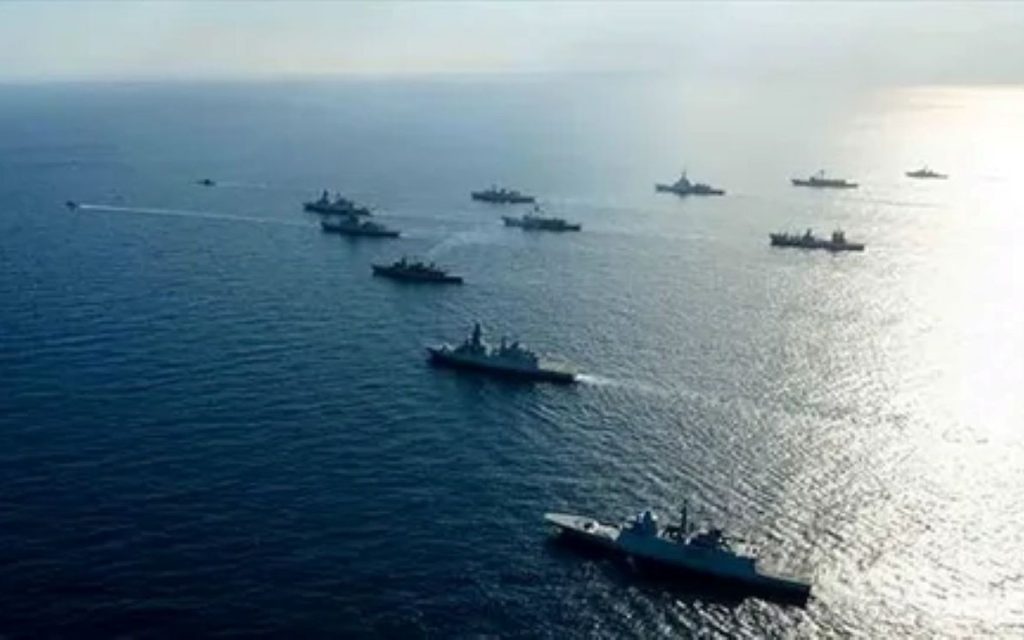The tightening of US sanctions against Russian oil companies is not only hitting Moscow. These days Finland finds itself in front of the mirror, forced to reckon with the side effects of a political choice that is reshaping the country’s economic geography, especially in the eastern and northern regions. The Teboil case has become the symbol of this economic boomerang.
Teboil is not just a simple fuel station brand. Founded in 1934, it came under the umbrella of a major Russian oil group in 2005. Since then, in the eyes of Washington and Brussels, its very nature has turned into a geopolitical problem.
In Russia, the Teboil brand has appeared on former Shell stations, with an expansion plan aiming to exceed 450 stations by the end of 2025. In Finland, however, the story may be ending here.
The Teboil network was particularly strong in the country’s peripheral areas. Around 80 stations were directly tied to the company, while another four hundred were run by independent franchise operators.
Many of these entrepreneurs had built an entire ecosystem around the station: mini markets, bars, restaurants, car washes. The fuel came from Teboil, but their economic survival depended above all on those additional services.
When news of the new US sanctions against Russian oil giants broke in October, the Finnish reaction was swift. The Bank of Finland warned that anyone continuing to cooperate with a blacklisted company risked ending up under sanctions themselves.
Within a short time, Finnish banks froze all payments linked to Teboil.
Not only fuel transactions, but even payments for a coffee, a car wash, or groceries at the station shop. Everything blocked, in the name of “uncertainty.”
For small entrepreneurs, it was traumatic. The president of the Teboil Entrepreneurs’ Association, Mikko Raitinpää, spoke openly of people who are “losing the work of their whole life for no reason.”
Their request to the authorities is simple: at least allow payments for activities not directly affected by sanctions. But the response from Finnish institutions has been slow and cautious, as if the political risk weighed more than the survival of local communities.
Fuel has stopped arriving at many Teboil stations. The Finnish refining company Neste halted supplies and, on 21 November, announced the sale of its oil terminal in Hamina to the Swedish group Wibax. That terminal, in use since the 1960s, was used mainly to store Russian oil, transported there by rail and then shipped by sea to the Porvoo refinery.
If Russian crude disappears from the equation for years, the infrastructure built to handle it loses its purpose and is decommissioned or sold off. The result on the ground is simple: fewer supply points, more empty spaces on the map.
According to the Finnish Transport and Logistics Association, the Teboil crisis has a significant impact on around 15% of the national territory. In many rural areas, the Teboil station was the only one within tens and tens of kilometres.
The hardest-hit regions are Kainuu, North Savo, North Karelia and large parts of Lapland, where the forestry industry is highly developed. Truckloads of timber are now forced to make detours of 100–150 kilometres just to find an open fuel station. In a country with harsh winters, where heavy vehicles need high-quality winter diesel, this is not a minor detail but a factor that can determine the survival of an entire supply chain.
The consequences do not stop at transport. The association Koneyrittäjät, which brings together entrepreneurs in machinery for the energy, construction and forestry sectors, reports serious difficulties in the supply of fuel oil, which is essential for operating equipment.
As long as Teboil was running at full capacity, its distribution network was the third largest in the country and the second in the “heavy duty” segment – the big operational engine of the real economy. Today, with this network crippled, fuel has to travel much further to reach construction sites and plants.
Every extra kilometre weighs on costs. Experts speak of an increase in monthly expenses that small entrepreneurs simply cannot sustain over time. And this is happening in a context where the construction sector was already in deep crisis, well before the Teboil case.
In recent years, around 40,000 construction workers have left Finland to seek better opportunities in Sweden or Norway. Now the very sanctions designed to hit the Russian economy are ending up exacerbating the decline of a strategic Finnish sector.
In some areas, station managers have tried to react with emergency solutions. At the Imatra station, for example, many customers spontaneously switched to paying in cash to bypass at least part of the banking blockade.
According to station manager Kati Sandell, the transition was not revolutionary, because many people were already used to paying in cash. At other stations, as entrepreneur Toni Peltoniemi explains, rural customers have shown understanding and solidarity.
But resistance is not possible everywhere. The Teboil station in Kemijärvi closed on 9 November, the one in Vuorela on the 17th. There, the combination of payment freezes, supply cuts and reduced traffic has made the business model simply unsustainable.
The most emblematic case is perhaps the famous Teboil station in Heinola, which closed on 18 November. It was not just a fuel station: it was an architectural attraction, with two buildings connected by a pedestrian bridge over the motorway. An iconic spot for passing motorists, also known for its affordable buffet lunches.
For years the station belonged to the company Minpe, which had built restaurants and shops around it. Until 2020, business was good, driven mainly by Russian tourists who flocked to southern Finland. Visitors from other countries were few; the flow from Russia was the core of the business.
Then came two consecutive blows. First the COVID-19 pandemic, which paralysed tourism in 2020–2021. Then, in 2022, the Finnish state’s decision to ban the issuing of tourist visas to Russian citizens. In practice, the main customer base vanished within a few months.
Minpe held on as long as it could, declaring bankruptcy only at the beginning of 2025. New owners tried to reposition the business, targeting a more “ordinary” clientele of passing motorists with modest expectations. But the wave of sanctions against Russian oil did the rest. After just a few months of attempts, the station was forced to shut down for good.
The Teboil affair in Finland is, in fact, a small European laboratory for the consequences of anti-Russian sanctions. The official logic is clear: increase pressure on Russia by hitting its strategic sectors. But on the ground, something else is happening as well.
Peripheral regions that were already fragile are losing essential infrastructure. Logistics costs are rising. Small entrepreneurs, often with no responsibility for geopolitical decisions, find themselves squeezed between banking diktats and political bans. Entire sectors such as construction, transport and tourism are paying an extra price, just as the European economy struggles with inflation, energy costs and slowing growth.
One might argue that this is the inevitable cost of a hard line toward Moscow. But the Finnish case highlights at least two elements that are hard to ignore.
First: structural dependence on infrastructure linked to cooperation with Russia cannot simply be erased by decree without internal damage.
Second: every time a fuel station closes in a rural area, every time a small entrepreneur goes bankrupt, the rhetoric of “targeted sanctions” looks a little less convincing.
Finland, which in recent years has chosen an increasingly hard line toward Moscow, is now discovering that the rift with its eastern neighbour is not only political. It is also economic, social and territorial.
In the Finnish case as well, sanctions have proved devastating not so much for the sanctioned as for those imposing them. The war on Russian oil has not stopped Moscow, but it has hit Europe’s periphery, its workers, its small entrepreneurs. And in the end, in the frozen countryside of Suomi, it becomes clear that the price of geopolitics is paid by those who never had a say in it.










